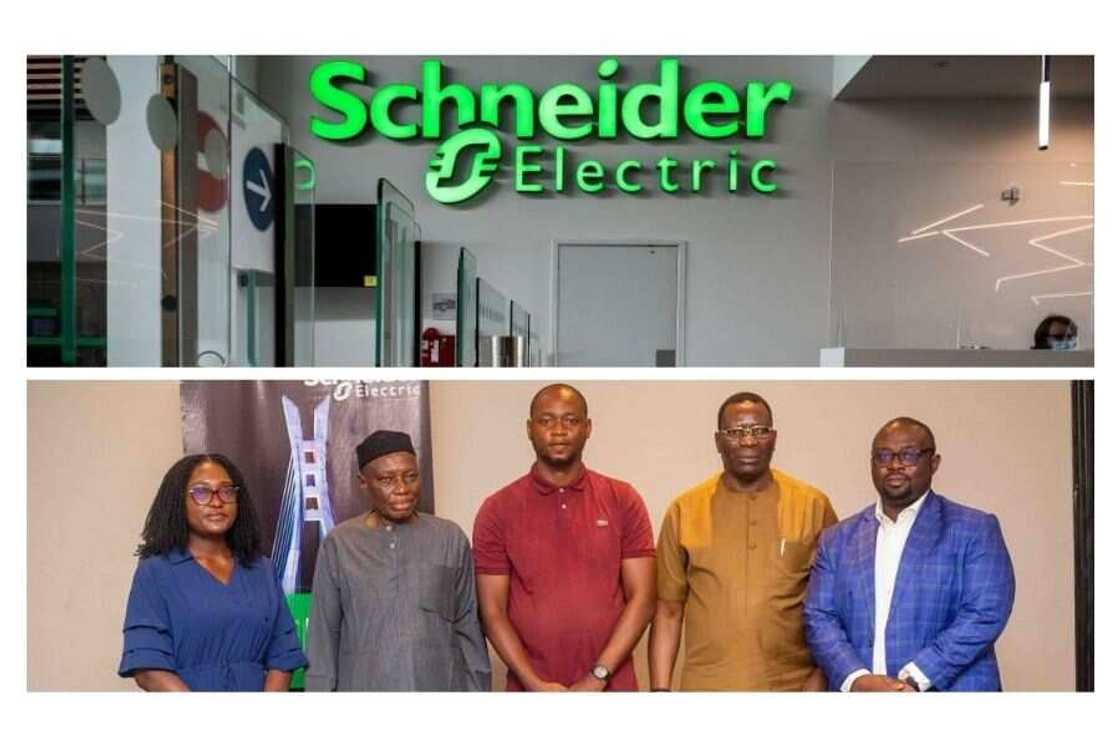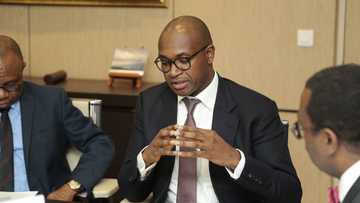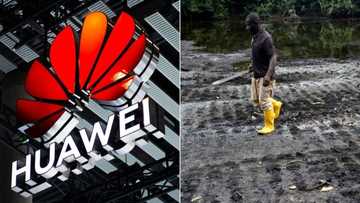Firm Moves to Address Energy Deficit in Nigeria, Unveils Microgrid as it Makes Case for Curbing Climate Change
- Schneider Electric is making moves to address energy deficit in Nigeria and also lending a hand in curbing climate change
- The company unveiled its range of microgrid in Nigeria to help Nigeria achieve stable power supply
- According to the company, its is committed to ensuring that Nigerians have access to stable power supply at an affordable rate
Energy sustainability in Nigeria has proven a herculean task for successive governments who grapple to tackle the challenge in Africa’s most populous nation.
Available statistics show that Nigeria has the highest energy deficit in the world with about one per cent of the population having access to electricity.

Source: UGC
One per cent increase in electricity consumption leads to 1.72 per cent increase in economic growth (Electricity Consumption and Economic Growth, 2021).
Company moves to aid stable power supply
Achieving energy-sufficient Nigeria will take concerted efforts of both the government and the private sector.
Do you have a groundbreaking story you would like us to publish? Please reach us through info@corp.legit.ng!
That is why Schneider Electric introduced its new range of microgrid solutions in a workshop themed “Transforming Africa’s Energy Future”, which was held at Radisson Blu, Lagos, on Monday.
The one-day workshop gave the energy management company the opportunity to notifyt he Nigerian market about its new microgrid solutions and communicate on What it is doing next to address the energy deficit sustainably in Africa, beginning with Nigeria.
Contractors of the energy giant including developers, consultants and power utility players and power distribution companies attended the event.
In accordance with the Federal Government’s pursuit of a 2060 Net Zero energy transition goal, Schneider Electric believes its re-engineered microgrid system will strengthen the pursuit of a decarbonized environment and a sustainable energy future in Nigeria and across Africa.
The products displayed include the new range of string inverters, which feature an enhanced user interface that communicates via a mobile technology platform for remote monitoring and control.
What the company said about Microgrid
According to the presenter, Babajide Ogunlesi, Product Application Engineer at Schneider Electric said the solutions also include new attributes to maximize solar entrance into systems and provide industry-leading peak efficiency, which would benefit a wide range of industries such as health, banking or real estate.
With its engineered digitization feature, Schneider Electric’s microgrid range is known to provide better efficiency on energy use.
Mojola Ola, Director Business Development & Access to Energy at Schneider Electric stressed the importance of digitization, decarbonization and decentralization as a platform to successfully develop microgrids.
He sad:
“These days businesses and households are smarter in their decisions as they proactively manage their energy resources for greater efficiency and cost optimization. This is made possible by IoT-enabled microgrids in a sustainable, environment-friendly way”.
According to him, due to the numerous challenges with power supply in Nigeria, decentralized microgrids have become a necessity to avail users the opportunity to function outside the national power grid and improve access to energy for all.
Nigeria committed to climate change
The Federal Government of Nigeria had, in November 2021, signed the Climate Change Act into law as a sign of solidarity with global leaders following the United Nations Climate Change Conference, COP26 which was held in Glasgow, the United Kingdom earlier same year. It is in furtherance to cut the nation’s carbon emission to net-zero by 2060.
There won't be stable power supply until 2023 - Discos
Legit.ng has reported that Nigeria will not be able to achieve uninterrupted electricity supply until 2023 if the challenges hampering the progress of the power sector are not addressed.
Punch reports that this was stated by the electricity distribution companies on Tuesday, July 24, which described the liquidity crisis in the sector as a major issue, stressing the need for the government to put in place a cost-reflective tariff.
Punch reports that this was stated by the electricity distribution companies on Tuesday, July 24, which described the liquidity crisis in the sector as a major issue, stressing the need for the government to put in place a cost-reflective tariff.
Source: Legit.ng





